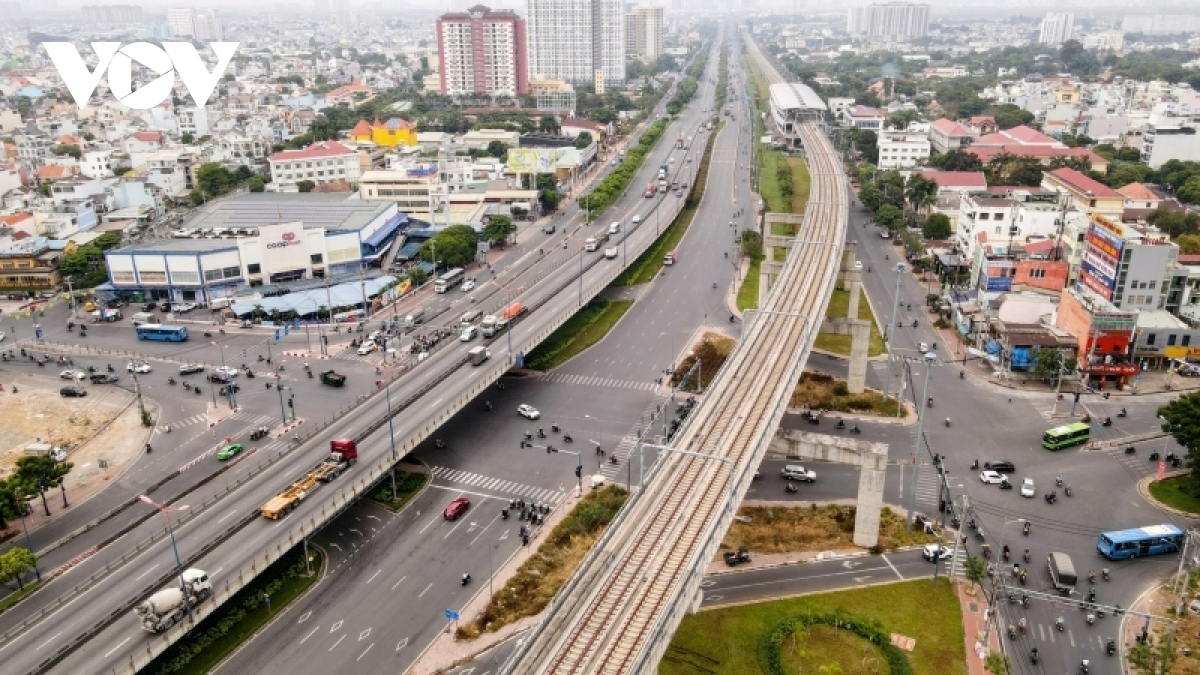Strategic changes needed to attract foreign investment to HCM City
VOV.VN - Amid tax incentives no longer being an advantage in attracting foreign direct investment (FDI) into Vietnam, Ho Chi Minh City requires strategic changes to attract more major foreign investors.
Recently, FDI attraction into the southern city has grown slowly. According to statistics released by the municipal Department of Planning and Investment, from 1988 to April, 2023, the southern metropolis led the country in terms of attracting investment capital from 117 other countries and territories globally with 11,220 projects totally capitalized at roughly US$83 billion.
However, in 2022 the total foreign investment capital into city stood at just over US$4.33 billion, marking a decline of nearly 40% compared to the previous year.
The initial four months of this year saw the city receive US$979.65 million in foreign investment capital, a decline of 23.4% on-year.
FDI capital in the southern city mainly focuses on industries such as repairs, trade, information, and communication.
Dr. Nguyen Tu Anh, head of the General Economics Department of the Central Economic Committee, attributed falling FDI inflows into Ho Chi Minh City to trends relating to large enterprises in North America, East Asia, and the EU’s to shift their investment to countries that are geopolitically close, such as India, the Philippines, and Indonesia.
In addition, the global minimum tax will lose its advantages for countries with tax incentives like Vietnam when applied.
Dr. Nguyen Tu Anh explained, "Vietnam is offering a lot of incentives to FDI enterprises, especially major corporations with the tax rate of lower than 15%. If we keep that incentive, then their own countries will pay 15% more, then the incentive will no longer work because those businesses will lose 15% anyway, partly to Vietnam, partly to their nations."
Furthermore, many experts also said that FDI in Ho Chi Minh City has decreased because due to the city’s failure to take effective measures in terms of accessing, attracting, and providing information to international investors. In particular, administrative and legal procedures remain cumbersome and are difficult for the project implementation process.
Another reason was also posed by Dr. Banh Quoc Tuan of Thu Dau Mot University in the southern province of Binh Duong, that is the transport infrastructure connecting the region has yet to meet the development needs.
Telecommunications infrastructure, digital technology, health care, and education fail to meet the requirements of many foreign investors, Tuan added.
Key investment attraction is needed
In order to lure more foreign investors, Cao Thi Phi Van, deputy director of the Investment and Trade Promotion Center (ITPC), stated that when tax incentives are no longer useful, the southern city needs to focus on administrative reform aimed at improving the investment environment in order to make it transparent and clear, with little change in investment policy for easy prediction.
Along with focusing on high-quality FDI capital, it remains necessary to strengthen regional linkages, Van stressed.
"Ho Chi Minh City cannot develop by standing alone. The city can only develop when the surrounding provinces develop together. Then we will establish chains of links. Ho Chi Minh City is an important link in that link chain so it is essential to cooperate with provinces and cities to form a strong raw material area and supply chain," Van went on to say.
The ITPC representative also said that moving forward the centre will continue to promote the expansion of links with foreign diplomatic missions according to the needs of the field, with the priority city expecting greater investment.
It will guide investors to carry out licensing procedures, advise the southern city to upgrade its infrastructure facilities, whilst supporting businesses in connecting through exhibitions on supporting industries and investment in connecting with the manufacturing industry.
This could be done by building a trade and investment promotion centre into an agency that receives and summarises feedback from departments and sectors as to deal with investors' recommendations, problems, and difficulties, whilst also providing more support for businesses.
Pham Phu Truong, general director of GIBC Global Integration Business Consulting Company, commented that, besides expanding links through diplomatic missions, ITPC can co-operate with many other units to invite foreign partners to do business in Ho Chi Minh City.
According to Truong, entrepreneurs and investment funds with many relationships are also easy-to-share clues with other investors. Therefore, the centre may consider inviting those units or groups of financiers who understand the city operational mechanisms, thus facilitating foreign investment attraction.
Truong also suggested that there should be an assessment of potential investors aimed at attracting strategic financiers to pull in others, thereby opening up new development space for the southern city moving forward.

